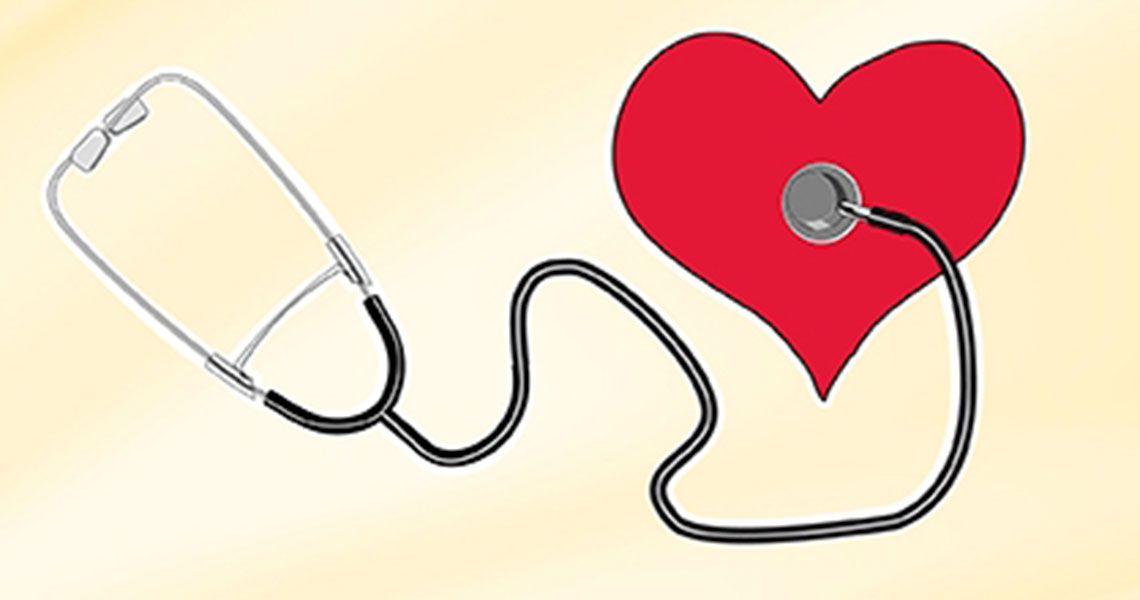Your heart may be extra happy around this time of year, but is it healthy?
February is American Heart Month. And although heart health can’t be a think-of-it-once-a-year consideration, now is as good a time as any to consider your heart disease risks—and how you can lower or eliminate them to avoid a trip to the emergency room.
Bloedorn Professor of Cardiology at the GW School of Medicine and Health Sciences Richard Katz spoke with George Washington Today about the changes you can make now to lower your chances of heart disease—and when it may be time to see a doctor.
Q: What are the most common heart-related problems in the United States?
A: Heart disease, in which plaque builds up in a person’s arteries and makes it more difficult for blood to flow, is the leading cause of death for both men and women in the United States. It kills 600,000 people a year, accounting for 1 in every 4 deaths, according to the Centers for Disease Control and Prevention.
Heart disease increases your risk for a heart attack or stroke. A heart attack occurs when the heart lacks the oxygen it needs because blood can’t travel through a constricted or blocked artery. And strokes are caused by blood vessels that become blocked or burst. Both are, unfortunately, very common heart problems for Americans. Heart attacks alone occur about once every 34 seconds, according to the American Heart Association. Heart failure, in which the heart doesn’t pump enough blood for the body, is also prevalent.
Q: Are men or women more likely to suffer certain heart-related conditions?
A: Both men and women can be at risk for heart disease and stroke; however, on average, women develop heart disease five to 10 years later than men.
Q: What risk factors predispose someone to heart problems?
A: One risk factor is high cholesterol. “Bad” cholesterol in the blood can build up and, with other substances, form plaque, constricting or blocking arteries and causing a heart attack or stroke. High blood pressure, or the increased force of blood against the walls of your arteries, is another risk factor. Obesity, inactivity and an unhealthy diet—particularly too much salt in the case of high blood pressure—can all contribute to high cholesterol and high blood pressure.
Important risk factors for heart disease include: smoking, obesity, diabetes and a family history of heart attack, especially if a family member had a heart attack under 55.
Q: What can people do to lower their risk?
A: Lifestyle changes are one way you can significantly lower your risk for heart-related problems. Stop smoking; participate in at least 30 minutes of moderate-intensity activity three or more times per week; maintain a heart-healthy diet that aims to reduce your intake of saturated fats, from sources like butter and cheese, and simple carbohydrates, such as white bread and sweets; and, if you are overweight or obese, lose weight by eating less and moving more.
Medication, at your doctor’s request and in tandem with changes in lifestyle, may also be necessary.
Q: If you are concerned about your health, when is it time to see a doctor?
A: Chest pains or discomfort, or an unusual shortness of breath, are indications you should see a doctor immediately. Understanding your risk factors and working to reduce or eliminate them will help you avoid your ever getting to that point.



